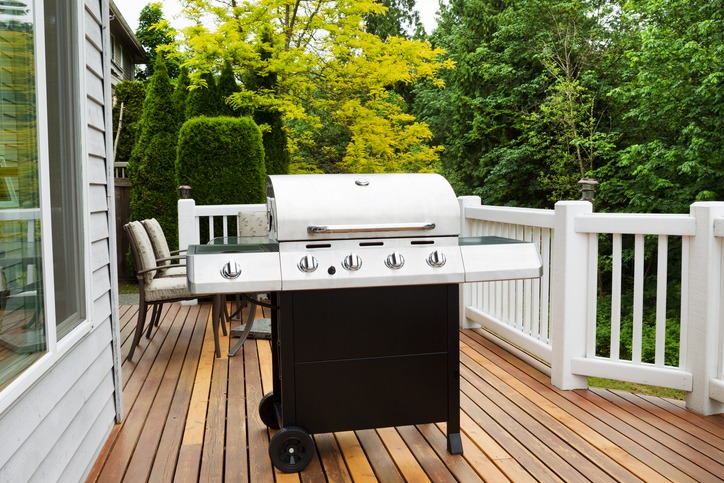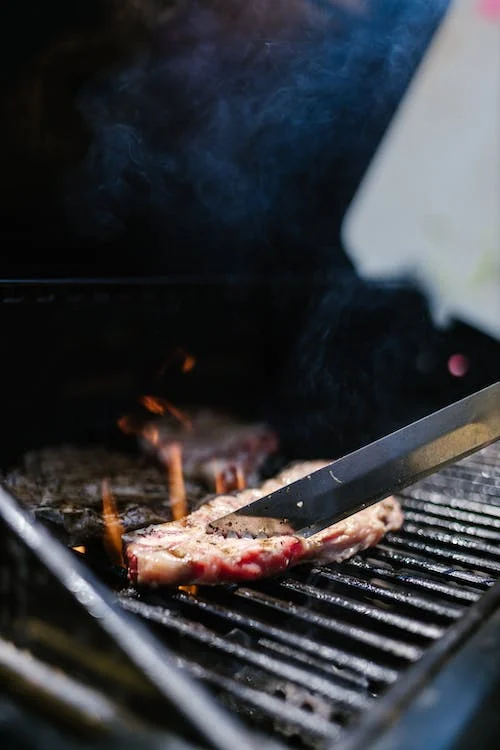If you’re getting ready for cookout season, a new grill might be on your shopping list. But before you use it, there’s one question that is without a doubt debated by grill users, and that’s “Should you season a new grill?” Some will say yes, but some would say no – both for good reasons.
Learn here about the answer to that big question.
What Do You Mean by Seasoning a Grill?
For new grill users, we have to discuss first what seasoning a grill means. It means using oil – either canola, olive, vegetable, or other types of cooking oils – to condition the grill for a better grilling experience. One can do this by coating the grill with the right amount of oil and preheating it until the oils show a slightly amber color. Once there’s already a light smoke, then you can proceed to grill foods like meats, fish, poultry, or vegetables. Seasoning the grill helps the food not stick into the grill.
Good Reasons to Season a New Grill
Keeping a seasoned grill will help prevent your good from sticking to the grill when it’s done cooking. Nothing is worse than using tongs to pick up beef, chicken, or fish, only for it to fall apart into the bottom of the grill. Because of that, the entire grilling session would be loaded with smoke from the burning food in the burners. Plus, the additional food you’re going to grill would taste charred as it will come with burned food from earlier. Why would you allow it to look like a barbeque pit in the middle of a park after you bought it new?
This is why it is recommended to season a grill, even when it’s new. Some people skip the seasoning portion of grilling when using a new grill, especially when it’s a non-stick surface. But even though the label and the manufacturer suggest it’s a non-stick grill, pre-oiling and heating will always help protect the grill, prevent rust, and prevent getting stuck-on food the first time you try out your grill. Also, the high heat process of seasoning can burn off any other contaminants or dust that are left on the grates during the manufacturing process.
Why Some People Say No to Seasoning a New Grill
There’s always a catch to things, and seasoning a new grill is. Oiling would be great if they are kept within the low-burning smoking range they should be in. But when oils are cooked in extreme heat beyond the recommended temperature, they can emit carbon on the grill or even your food. And carbon doesn’t make food taste better.
A little bit of charred carbon gives a smoky flavor to meat, but a lot can be dangerous to the health. Too much eating grilled foods can be cancerous, so not seasoning a new grill is believed to lower the risk (at least for a little bit).
Should you Season a New Grill?
Given these facts, the question remains: should you or should you not season a new grill? The answer depends on the results you want. If your priority is to preserve the grill and taste of the food, then, by all means, season your new grill. But if you don’t want to risk yourself inhaling harmful carbon and adding more carbon to your food, then don’t season your new grill.
If you’re a pro or a constant griller (or planning to grill regularly), consider seasoning your grill, especially your new one. Thermometer and thermometer sensors on the grill would be a huge help to help ensure that you won’t over-burn the oil when seasoning.
If you’re a griller who doesn’t like to pay attention to the minor details, and if charred grills don’t bother you, then you may not season your grill to save some time and effort and get to eating right away. But if you’re a griller who wants to get the best possible taste, then season your grill the right way.
How to Season Your Grill
Before we tackle the steps in seasoning a grill, you must know the best oils to use for that purpose. Most grill manufacturers suggest using canola or peanut oil because it can handle high smoke points over 450° F. You can also use vegetable oil, avocado oil, and sunflower oil because of their high smoke points that ensure the oil won’t burn.
Here’s how to season your grill grates:
- Tools needed:
- Cooking oil
- Spray bottle
- Grill brush
- Paper towel
Procedure:
- Fill the spray bottle with high-heat oil.
- Use a grill brush to clean the grates. Brush away any stuck-on food, dirt, and other debris.
- Spray the grates with oil. Make sure you cover the grates fully.
- Use a paper towel to wipe off any excess oils. The goal of seasoning is to cover the grates in a thin, even layer of oil.
- Turn the grill on high heat and allow it to cook the oil for around 30 minutes. The grates must start to darken as the oil and smoke work their magic. The darker the grates get, the more grilled flavor it will add to the food over time.
Alternatively, you may want to use oil sprays for grilling, so you don’t have to transfer cooking oil into a spray bottle.
If your grill is seasoned properly, you can keep it looking brand new for a longer time. But if you season the grill the wrong way, a.k.a. under extreme heat, then it will cause carbon buildup on your grill, the food, and in the smoke, which isn’t good.
However, seasoning a grill only makes sense if it has been cleaned before. If the grill grates are dirty and in a state of perpetual blackness, then seasoning the grill will only make your food taste horrible. For best results (and for a longer lifetime for your grill), make sure to keep it clean before and after use to experience fewer grilling issues.
If you’re new to grilling, check out this ultimate guide.


